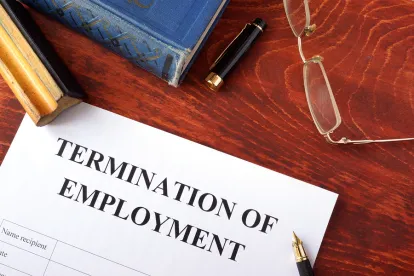On Friday, Jan. 19, 2018, the Wisconsin Supreme Court issued a landmark decision in Manitowoc Company, Inc. v. Lanning that applies Wisconsin’s notoriously strict restrictive covenant statute and holds:
-
The employee non-solicitation provision at issue was a restraint of trade governed by Wis. Stat. § 103.465 and
-
The prohibition on Lanning’s solicitation of “any employee” of Manitowoc Company was an unreasonable restraint of trade unenforceable under § 103.465.
In light of these two holdings, employers should review their existing restrictive covenants with legal counsel to determine if updates are necessary.
Background
John Lanning worked for Manitowoc Company as an engineer for over 25 years before resigning and becoming the director of engineering for a Manitowoc Company competitor. Lanning signed a number of agreements over the course of his employment, and in 2008, he signed an “Agreement Regarding Confidential Information, Intellectual Property and Non-Solicitation of Employees,” in which Lanning agreed not to solicit “any employee” of the company for two years following termination
[F]or a period of two years . . . (either directly or indirectly) solicit, induce or encourage any employee(s) to terminate their employment with Manitowoc or to accept employment with any competitor, supplier or customer of Manitowoc. . . .
Manitowoc Company alleged that Lanning violated his employee non-solicit through various recruitment efforts. The trial court awarded damages and attorney’s fees to Manitowoc Company, but the Wisconsin Court of Appeals reversed the award on the grounds that the non-solicitation provision was unenforceable under § 103.465. The Wisconsin Supreme Court granted review, noting that the employee non-solicitation provision at issue has not been analyzed by any prior Wisconsin court decision.
Two-step analysis
The Wisconsin Supreme Court used a two-step approach to determine whether Lanning’s employee non-solicitation was enforceable.
First, the Court analyzed whether the provision acted as a restraint of trade such that it would be subject to Wisconsin’s restrictive covenant statute. Although Wis. Stat. § 103.465 refers specifically to a covenant by an employee “not to compete” with the employer after the termination of employment, it also provides that “[a]ny covenant…imposing an unreasonable restraint is illegal.” Focusing on the effect of Lanning’s employee non-solicitation provision rather than the label, the Court concluded that it was a restraint of trade because it restricted Lanning’s and Manitowoc’s competitors’ ability to freely compete “for the best talent in the labor pool.” 2018 WI 6, ¶ 9.
The Court next scrutinized the reasonableness of the provision under Wis. Stat. § 103.465 and concluded that it was overbroad on its face. The Court stated in no uncertain terms that the provision created “a sweeping prohibition that prevents Lanning from encouraging any Manitowoc Company employee, no matter the employee’s job or location, to terminate his or her employment with Manitowoc Company for any reason, or soliciting any Manitowoc Company employee to take any position with any competitor, supplier, or customer of Manitowoc Company.” 2018 WI 6, ¶ 56. Further, “[w]ithout a specified territory or class of employees, the provision restricts Lanning’s conduct as to all employees of Manitowoc Company everywhere” such that the provision “covers each of the 13,000 Manitowoc Company employees regardless of the business unit in which they work or where in the world they are located.” Id. ¶ 59.
Notably, it was of no import that Manitowoc sought to enforce the employee non-solicitation provision more narrowly than compelled by its plain language: Manitowoc “could have tailored the language to its specific needs” and should have done so because “[e]nforcing an overbroad restraint to the extent it can be reasonably enforced is exactly what § 103.465 was enacted to prevent.” Id. ¶¶ 50, 61.
Evaluating your restrictive covenants after Lanning
Employers and legal counsel should evaluate and draft employee non-solicitation clauses in employment and independent contractor agreements consistent with the new Lanning decision. Employers also need to be conscious to review any employee non-solicitation language in their current agreements. Employers should revisit their employee non-solicitation provisions with legal counsel if the restriction broadly restricts a company’s employees from soliciting any coworker to leave employment for any reason; is not limited to certain employees or work; and/or applies regardless of the restricted employee’s relationship or contact with coworkers.
In order to increase the likelihood that an employee non-solicitation restriction will be enforced, provisions must be carefully tailored. Considerations that should be incorporated into the restriction include the restricted employee’s position, his/her level of influence over other employees, and the competitive threat he/she poses to the company. Ultimately, employers must draft the restriction to serve a “legitimate and unique competitive interest.”
In addition, keep in mind that changes to restrictive covenants need to be supported by consideration. If you are considering making changes to current agreements with your existing employees, you need to provide additional consideration for the change, which can include, but is not limited to a change in the employment relationship, a monetary benefit, continued employment, etc.





 />i
/>i
